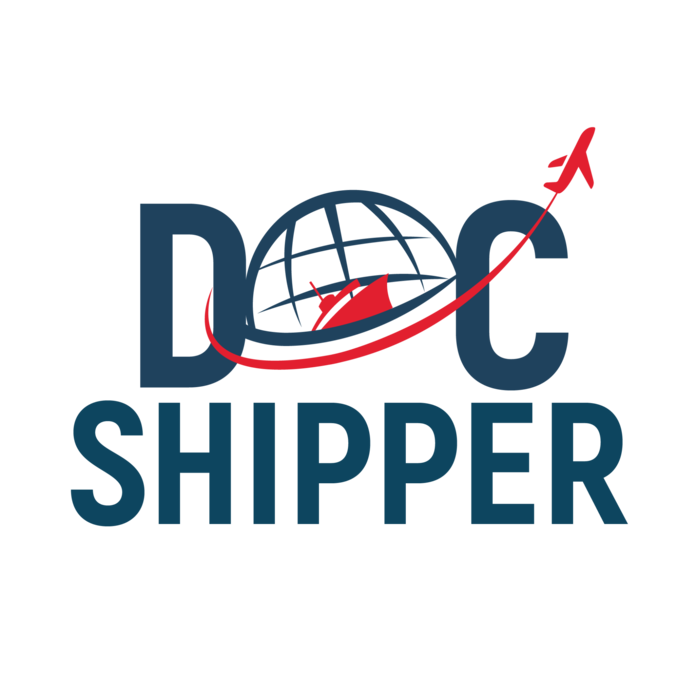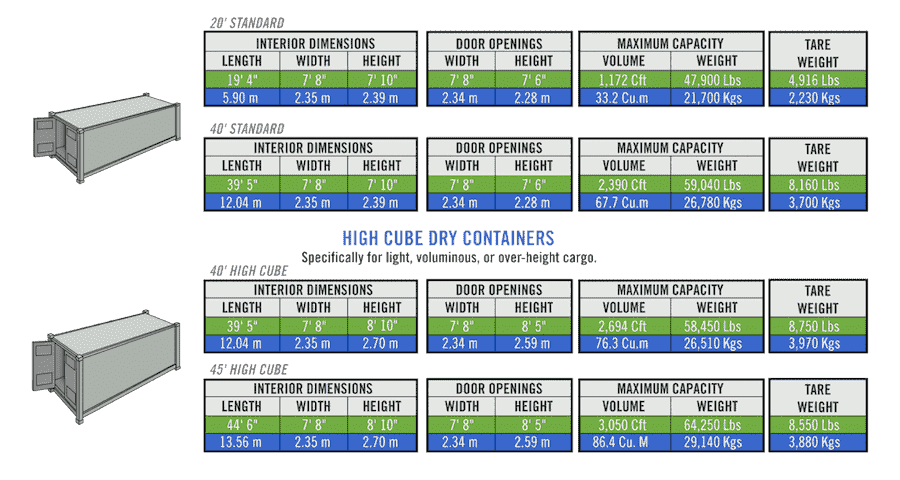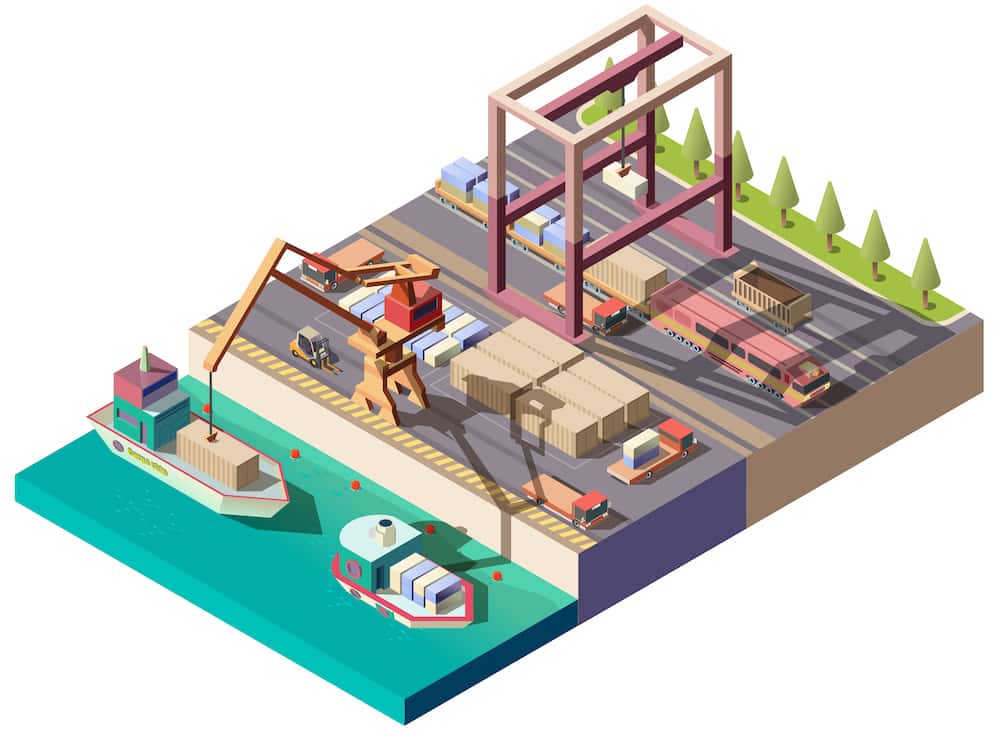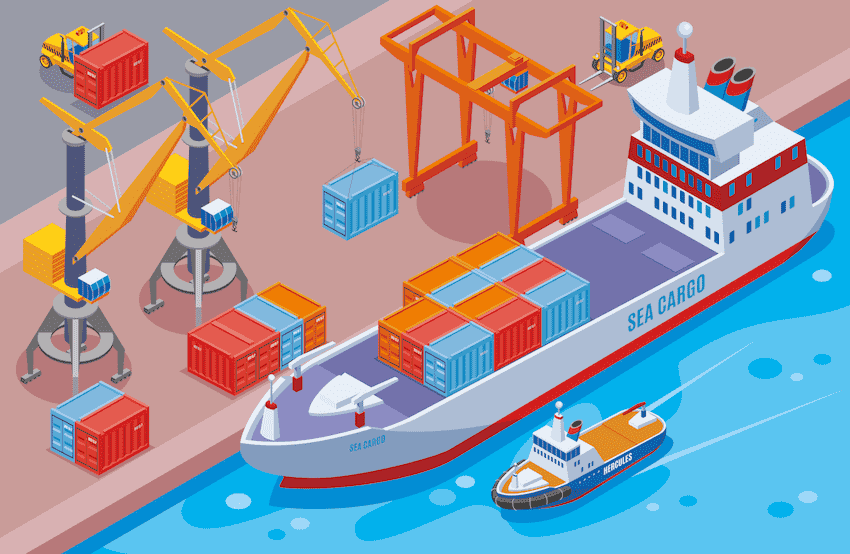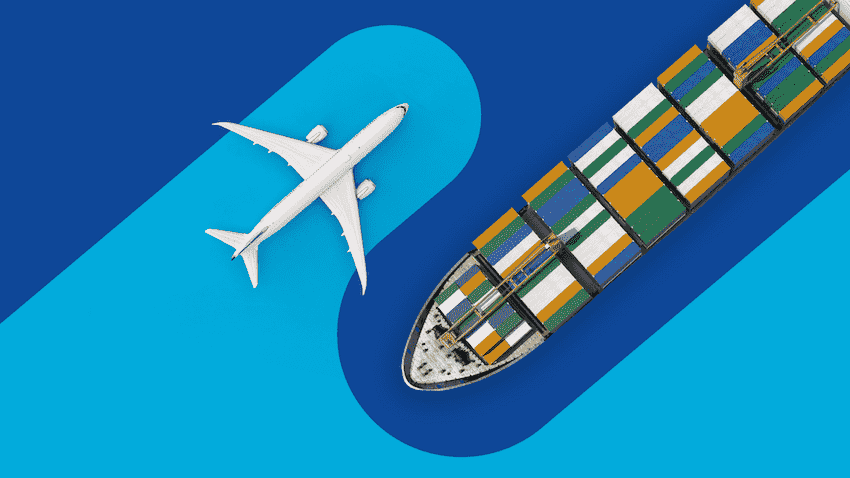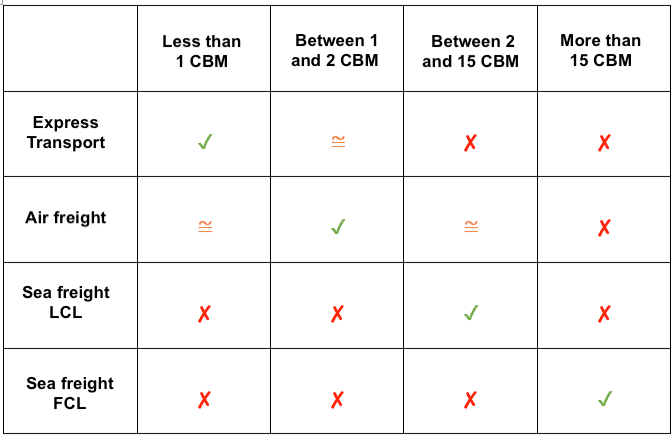This featured page explains the inner workings of sea freight in the UK. There are various things to consider when engaging in shipping operations including: LCL or FCL, delays, pros and cons to keep in mind ...
Sea freight allows you to participate in economies of scale thanks to "Shipping Lines", which allow (shipping companies) to move thousands of containers on each trip, making it the most widely used mode of transport in the world.
This is obviously a service we provide, so with our years of experience, we know all the ins and outs of maritime freight. You will find all the information you need to use sea freight in the best way
Table of Contents
Sea freight from / to UK: price, time and process
LCL (Less Than Container Load) - Container groupage
LCL stands for “Less Container Load”. If an exporter does not have enough volume to fill a full container (also known as FCL), they must make an agreement with a consolidator to reserve a slot. This form of cargo is known as LCL, which indicates that you are sharing a container. The consolidator arranges a full container load (FCL) with a primary carrier and consolidates the cargo from additional shippers. This procedure implies that the transport company accepts products from several customers and groups them together in a container that it has reserved as FCL (Full Container Load). The transport company (like DocShipper) organizes the cargo by destination or transshipment points, with separate recipients in different ports.
When the goods arrive at their destination, the freight forwarder separates them and distributes them independently to each final destination, collecting the corresponding expenses as needed.
FCL (Full Container Load) - Full container
FCL stands for "Full Container Load". If a customer has a large volume to ship, they will rent a single container, called FCL (Full Container Load). This container will be loaded with the company's goods. Note that the shipper is not required to completely fill the container; the option of occupying or leaving empty any space is purely at the discretion of the customer.
DocShipper note: From 15 m3 we suggest you choose an FCL, which will be cheaper than an LCL even if the container is half empty. It should be noted that this quantity of 15 m3 is only indicative; for some destinations, an FCL (full container) solution will be advantageous from 13 m3 or 14 m3, as it may be from 17 m3 or 18 m3 for others.
Sea Freight From/To UK - Estimated Transit Times
How long does it take to ship a container from/to the UK?
| London | Milford Haven | Liverpool | Grimsby & Immingham | |
| Sydney | 34 days | 35 days | 36 days | 35 days |
| Singapore | 32 days | 33 days | 34 days | 33 days |
| Dubai | 20 days | 21 days | 22 days | 21 days |
| Rotterdam | 5 days | 6 days | 7 days | 5 days |
| Antwerp | 5 days | 6 days | 7 days | 5 days |
| Le Havre | 4 days | 5 days | 6 days | 5 days |
| Bangkok | 32 days | 33 days | 34 days | 33 days |
| Shanghai | 34 days | 35 days | 36 days | 35 days |
| New York | 21 days | 22 days | 23 days | 23 days |
DocShipper Note: Transit times are very flexible and can vary depending on several factors such as the commodity being transported, the type of container, and even the shipping company. To ensure proper tracking of the order and to get a suitable delivery time, you can contact our experts at DocShipper. They will get back to you within 24 hours. And for more information about DocShipper and our services. You can visit our official website.
Which ports are used for international sea freight to/from the UK?
England, Wales, Scotland, and Northern Ireland make up the United Kingdom. It is an island nation with a number of major cities in fields ranging from athletics and entertainment to finance. But the UK also has some of the most powerful ports in the world.
Felixstowe Port
This facility in Suffolk is the country's biggest, processing 48% of the country's container commerce. It is Europe's seventh-busiest port, with a capacity of 3.8 million TEUs. The port is situated on the south-east coast of the United Kingdom, which puts it in proximity to the major ports on the continent's northwestern coast and its environs.
Felixstowe was the first purpose-built container handling port in the United Kingdom, servicing the world's biggest container ships. Due to the depth of the sea, it can easily handle enormous vessels, particularly in the 8th and 9th berths, which are earmarked for huge cargo ships. Additionally, the port is served by three rail lines, making it the biggest rail freight center in the United Kingdom. The port's rail connections will be upgraded to enable for the daily transit of 47 freight trains.
Southampton Port
Southampton is a thriving tourist port, but it also handles a significant amount of freight. It is situated on the country's southern coast and benefits from a rather strategic location, with easy access to rail and road networks. This means that passenger transit via the port is efficient, as is cargo movement to and from the port. Excellent road and rail connectivity is critical given the port's yearly passenger volume of around 1.7 million passengers from cruise lines such as Royal Caribbean, Saga Cruises, and Fred. Olsen Cruise Line, as well as local cruise companies such as Cunard Line and P&O Cruises.
Each year, the port handles up to 820,000 autos as part of its vehicle freight trade. It is meant to handle vehicle storage, with 80 hectares dedicated to auto storage and five multi-story parking garages. The port is home to the UK's second-biggest container terminal, with an annual capacity of around 1.5 million TEUs. Every day, it clears 23 containers for shipping to and from important freight-producing areas in the UK, including the Midlands, Scotland, the East Coast, and the North West.
London port
This port, which is partially on the Thames and partly on the North Sea, serves as a gateway to the United Kingdom's financial hub. It was previously the world's biggest port, but is now the UK's second-largest terminal. The port handled 51.2 million tonnes of cargo in 2021, a record high since the facility opened a decade ago. By 2035, the port forecasts a freight flow of up to 80 million tonnes through its river channels.
The Port of London benefits from some of the greatest rail, road, and maritime connections in the United Kingdom. The port's cargo facilities are entirely privately owned. They handle various types of commodities, from common to hazardous, as well as people and machinery.
Immingham port
Immingham Docks is a common moniker for this port, which is a major east coast center. In 2012, it was the busiest port in the United Kingdom. It remains the UK's biggest port in terms of tonnage capacity, handling 55 million tonnes of goods each year. This port is critical for the UK supply chain to function properly, ensuring the country's long-term energy production. Indeed, the port links the Humber, which is sometimes referred to as the United Kingdom's energy estuary, to the rest of the area.
Immingham's port handles ten million tonnes of coal and twenty million tonnes of oil annually, firmly establishing it as the country's energy hub. Due to the port's proximity to these sectors, it operates Ro-Ro services to the Scandinavian, northern European, and Baltic markets.
Liverpool Port
This terminal is the most conveniently positioned in the whole United Kingdom. This allows it to carry a variety of cargo types, including agricultural bulk, containers, vehicles, dry bulk, forestry goods, energy products, metals, Ro-Ro, liquid bulk, and project cargo.
The port includes a big marine terminal worth $400 million that can accommodate enormous ships. The port, on the other hand, is a popular tourist site. It is home to the Three Graces of Liverpool, which are an enduring example of traditional architecture in the nation. They are magnificent wonders of Edwardian Baroque splendor that border the beach.
How do I get and understand a sea freight quote?
What does DocShipper UK need to know to issue a quote?
Incoterm
Incoterms represent the responsibility of the buyer and the seller in the logistics chain. This is not a mandatory point of import / export, but we advise you to master them for several reasons. First, because talking about it will help you in negotiating with the supplier by showing that you are not a beginner in the matter. But also, because their use can make it possible to avoid misunderstandings which can turn into disaster for your business. Generally, suppliers use 3 different Incoterms:
- EXW (Ex Work): With this incoterm, the buyer is responsible for the entire logistics process from the origin (the supplier's factory or warehouse).
- FOB (Free On Board): Under this incoterm, the seller will be responsible for the entire process in the country of origin (road freight as well as all charges related to the terminal of origin).
- CFR (Cost and Freight): This incoterm is like the FOB except that it also includes international freight (payable by the seller).
- CIF (Cost Insurance and Freight): Finally, this Incoterm is exactly like the previous one (CFR) except that it also includes cargo insurance.
Weight in Kg and volume in m3
The volume (in cubic meters) and the weight (in Kg) are probably the 2 factors which will play the most on the price of your transport. It is therefore important to define them precisely so as not to have any bad surprises on the day. Note that for sea freight, the volumetric weight (which is the ratio of volume to weight) is always equal to 1 m3 = 1000 Kg. It is therefore almost impossible to rely on the weight even if it is significant for other services, in particular with regard to the loading / unloading of the container.
Nature of products
Some products are sometimes more complex than others to handle, in which case it will be necessary to take adequate measures not to cause damage to the goods. Note that there are also restrictions on certain products which may be restricted or even prohibited.
Departure and arrival address
Again, an important point of your future transport: where should the service start and where should it stop? Note that it is important to clearly clarify the conditions of access. For example, goods to be collected on the 5th floor without an elevator do not require the same energy as pallets ready to be removed, and therefore this will be reflected in the price of the service. It is also important to clarify who will handle the loading and unloading of goods.
Packing services
Last point to clarify, the packaging of your goods. This service is particularly expensive since it directly involves a packaging team and everything that is human factor is automatically synonymous with expenses. This step is too often sloppy when it will condition the safety of your goods throughout the transport.
Why should you work with a local freight forwarder like DocShipper UK?
What could be more practical for an exporter to negotiate directly with a local freight forwarder? DocShipper UK has understood that proximity to the customer is above all an asset, an invaluable trust.
Competitive
Thanks to market knowledge (and a network of certified partners), we can now compete with the biggest on the market with very competitive prices.
Agile
In addition to an attractive price, we also maintain flexibility in our teams. We manage operations optimally in order to offer a flexible service that can be adapted to all needs.
Dedicated services
DocShipper UK assists you throughout your project (s). A DocShipper consultant will be assigned to you and will be your exclusive contact, in order to optimize operations and avoid you having to go back and forth with traditional "customer services".
French Quality
In addition to an attractive price, we also maintain flexibility in our teams. We manage operations optimally in order to offer a flexible service that can be adapted to all needs.
Advantages and disadvantages of sea freight
Advantages of sea freight
- Cheapest option for high volume
- 0 limits regarding the volume
- Ecological method compared to airplane
Disadvantages of sea freight
- Very slow method
- Impacted by weather conditions
- Lots of handling
Sea freight vs air freight: the comparison
The price of transport
In terms of price, there is no picture! If sea freight is the most widely used method of transport in the world, it is because it is the cheapest on the market. Sea freight makes up over 80% of international transport, simply because it is best suited for large volumes.
DocShipper Note: While this formula is true for most cases, there are some cases where air freight is cheaper than ocean freight. This is for example the case with small volumes. In general, we recommend taking a look at air freight when you ship a volume of less than 1.5 m3, sometimes 2 m3 ... We will summarize the subject at the end of the page with a summary table.
Transit times
On this point, air transport is doing handily, with delays incomparable with sea freight. Take, for example, classic times of transport between China and the United Kingdom for comparison (the times indicated are door-to-door, so it involves the entire shipping process):
- Air freight: 5-7 days
- Sea freight: 40-45 days
Transport flexibility
Although not particularly slow, sea freight is extremely flexible on two very specific points: the volume transported and the nature of the products. If air freight is limited in terms of volume in relation to price, it is particularly so in relation to the nature of the products. For example, it is impossible to ship most dangerous products by plane: batteries, flammable products, liquids ...
Which method of transport to choose?
*The values shown in the table are only indicative. Results may vary depending on the origin, destination and nature of the goods.
✓ = Most adequate shipping method
≅ = Shipping method possible
✘ = Unsuitable shipping method
FAQ | UK sea freight
⚓ From what volume does sea freight become interesting?
There is no exact value for this question, but generally we recommend opting (if you are looking to optimize your costs) for ocean freight from 1.5 to 2 cubic meters.
🚢 Groupage (LCL) or full container (FCL), which is the best solution?
Like the previous question, there is no exact value. It depends on the nature of your products, the period, the origin and the destination. On the other hand, we recommend opting for a full container (FCL) from 14/15 cubic meters.
🧾 How is sea freight billed?
The costs are divided into 5 very specific items which are always invoiced in the same way (in addition to the variation linked to the volume): collection at origin and delivery to destination which depends on the distance, export and import charges which depend on the terminals and finally the sea freight which naturally depends on the volume and the distance to be covered. Note that an LCL solution is billed per cubic meter while an FCL solution will be billed by container.
🇬🇧 How to choose the departure / arrival port?
Usually it just depends on the mileage between the terminals and the origin / destination. On the other hand, it is possible not to take the nearest port, quite simply because another will be better served and will therefore offer more competitive prices.
🗺️ Which shipowner to choose to ship to / from UK?
There isn't really an exact formula for the shipping line. The choice will depend mainly on availability and price. On the other hand, one thing is certain, you will probably go through one of the giants of this world: MAERSK, CMA-CGM, MSC, COSCO, EVERGREEN, HANJIN, OOCL, KLINE ...
🌍 What is a freight forwarder?
A freight forwarder is an actor in international logistics who will combine several services to make a complete solution that will adapt to your needs: packaging, storage, customs clearance, international freight ... DocShipper (as a freight forwarder), takes care of all !
DocShipper info: Do you like our article today? For your business interest, you may like the following useful articles :
DocShipper Advise : We help you with the entire sourcing process so don't hesitate to contact us if you have any questions!
- Having trouble finding the appropriate product? Enjoy our sourcing services, we directly find the right suppliers for you!
- You don't trust your supplier? Ask our experts to do quality control to guarantee the condition of your goods!
- Do you need help with the logistics? Our international freight department supports you with door to door services!
- You don't want to handle distribution? Our 3PL department will handle the storage, order fulfillment, and last-mile delivery!
DocShipper | Procurement - Quality control - Logistics
Alibaba, Dhgate, made-in-china... Many know of websites to get supplies in Asia, but how many have come across a scam ?! It is very risky to pay an Asian supplier halfway around the world based only on promises! DocShipper offers you complete procurement services integrating logistics needs: purchasing, quality control, customization, licensing, transport...
Communication is important, which is why we strive to discuss in the most suitable way for you!
